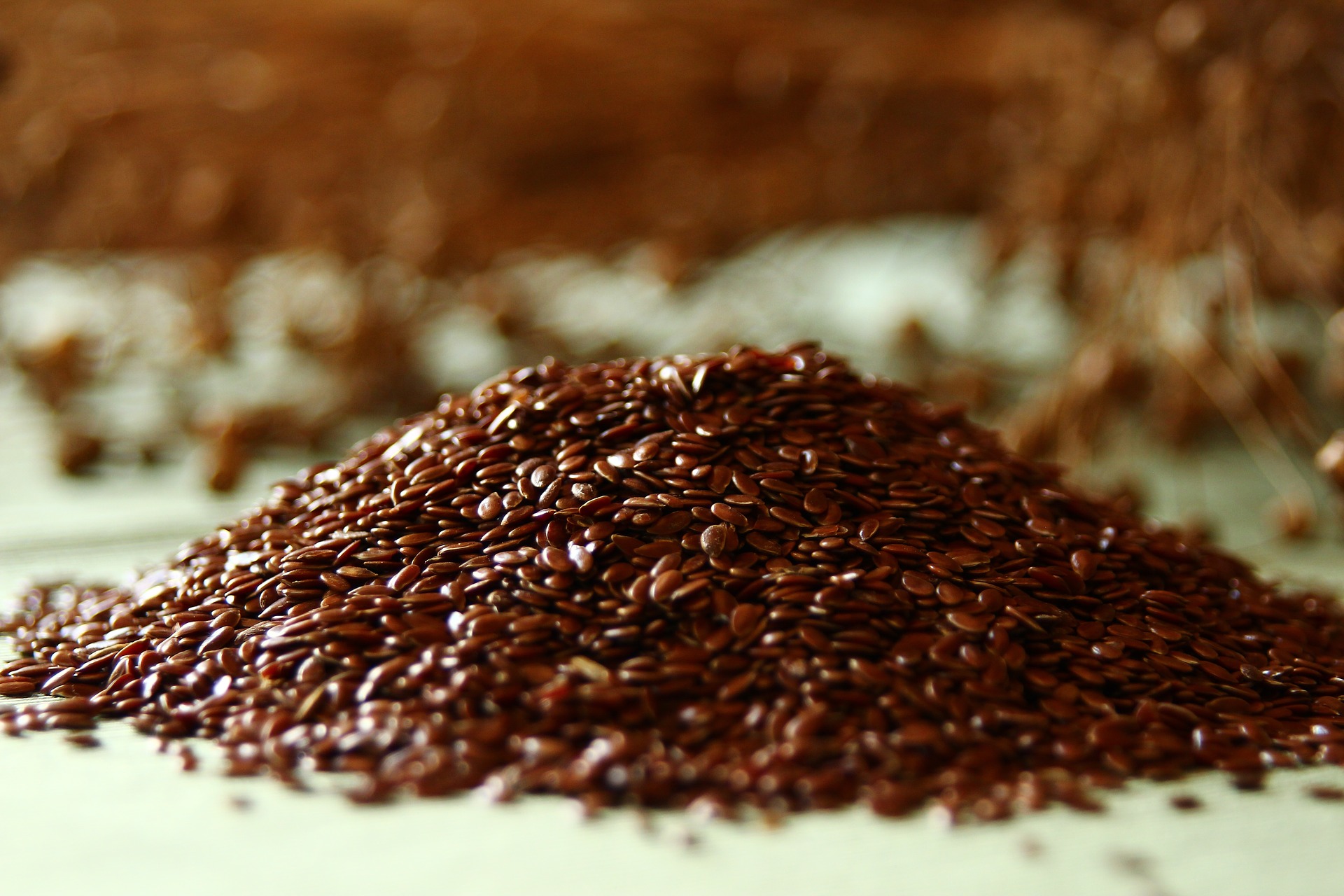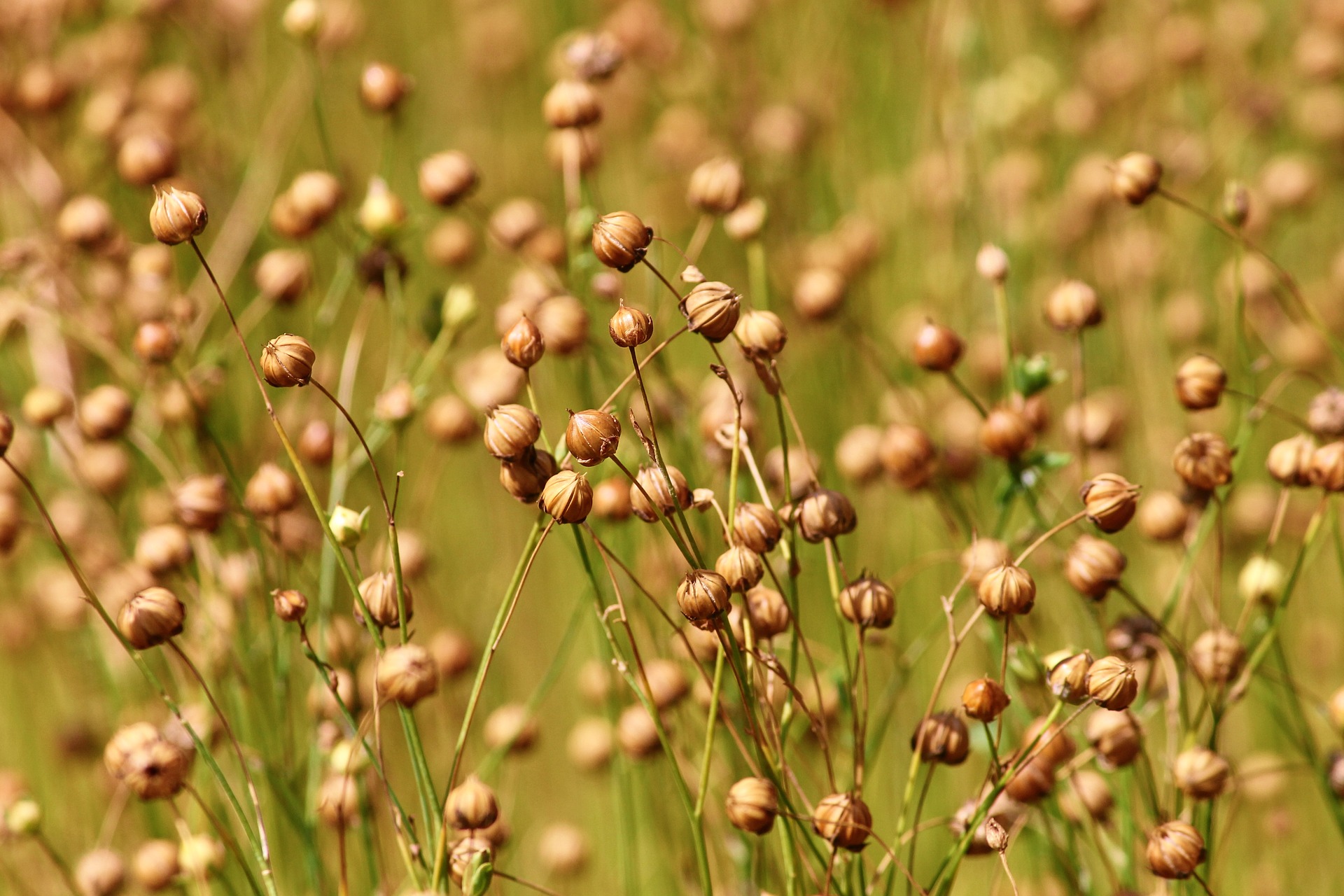
Flaxseed (Linum Usitatissimum)
Plant:
Flaxseed is a herbaceous plant, native to Asia, of the Linaceae family that can reach one meter in height. The leaves of flax are small, lanceolate, and usually arranged alternately. The flowers have five petals and are hermaphroditic, appearing in blue or purple colors. The fruits of flax consist of capsules (see photo below) which contain several oval seeds, of flax, very rich in oilseeds.
Nowadays, flaxseeds are widely used across the planet because they are considered a functional food, due to their nutritional and preventive properties, thanks to antioxidant and anti-degenerative compounds.
There are two types of flaxseed, brown and golden, but the nutrients of both are equivalent, although brown has less protein and golden has less fiber. As for the flavor, there is a milder taste in the golden flaxseed.
Properties:
Flaxseeds are a source of plant protein rich in amino acids such as arginine, aspartic acid, and glutamic acid. The antifungal, antioxidant, and anti-inflammatory properties stand out.
Benefits:
- arthritis,
- osteoarthritis,
- cholesterol,
- diabetes,
- weightloss,
- menopause,
- osteoporosis,
- arterial pressure,
- constipation,
- slows down cellular aging,
- risk of cardiovascular disease,
- immune system,
- view…
How to consume:
One tablespoon for adults and one dessert spoon for children is the ideal daily amount to consume flax seeds.
Flaxseeds can be eaten in oil, whole (plain or soaked), or ground (flour or bran). The ground option is the most recommended, as flax seeds have a very thick skin, which is difficult to break when chewing and will likely pass through the digestive system without being completely absorbed. So, to make sure that all the nutrients – especially the oil in the seeds – are used properly by the body, consume crushed flax seeds.
It is a gluten-free seed, so it is safe for intolerants and celiacs, which is a good option to replace wheat derivatives.
Flaxseeds can be added to meals or for example to make vegetable milk.
Contraindication:
The high fiber content means that specialists don’t recommend flax seeds for children under six months of age or people with inflammatory stresses in the intestines.
Additionally, people with systemic sclerosis should not eat flax seeds, as consuming them can cause constipation.
To avoid allergies and reactions, gradually incorporate food into your eating routine and feel how your body reacts to it, each body is different, it is important to be aware of any incompatibilities, total or momentary, generated by its ingestion.
This text is an awareness. Depending on the season and the moment in which you are, it is up to each Being to feel whether it should consume this food. The dosage and frequency depend on the nature and physical condition of each Human Being.

Learn more about flaxseeds on:
Seeds are sources of life, but pay attention to its energy validity




